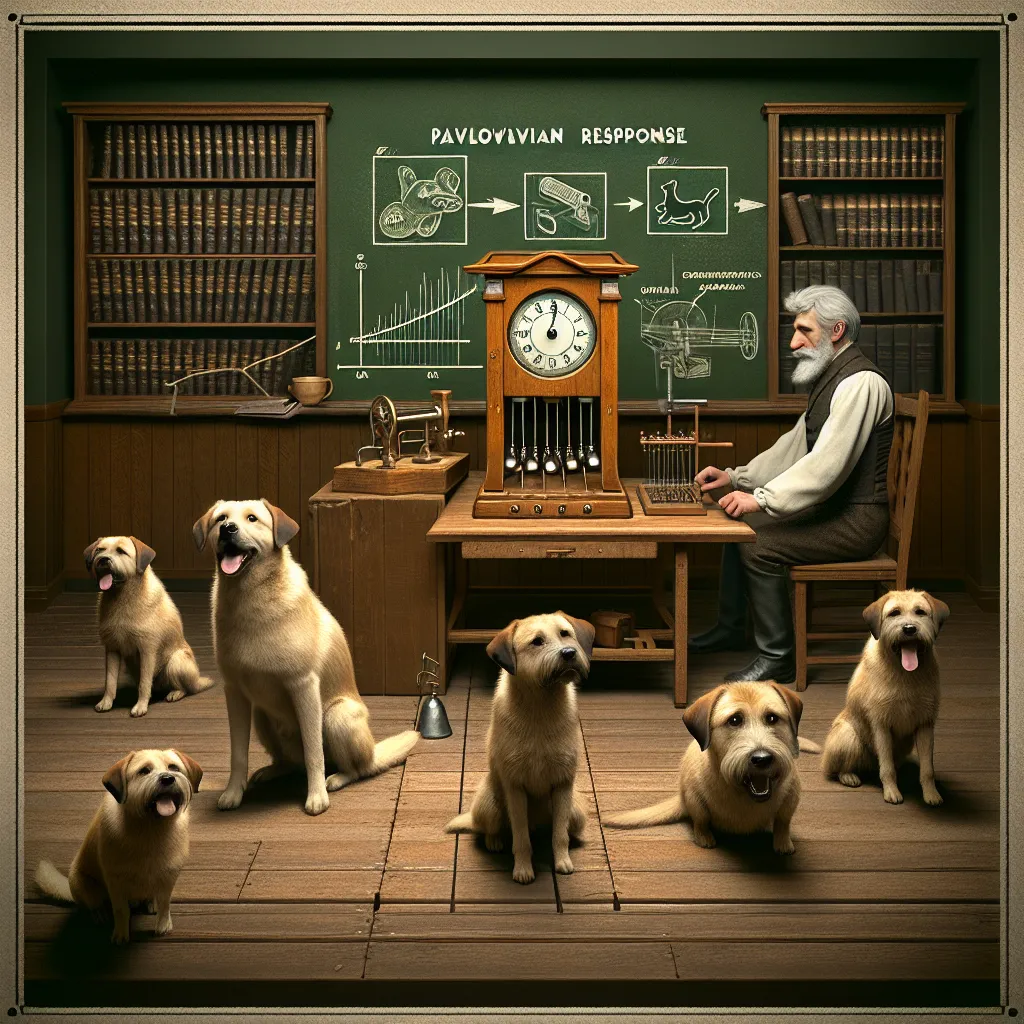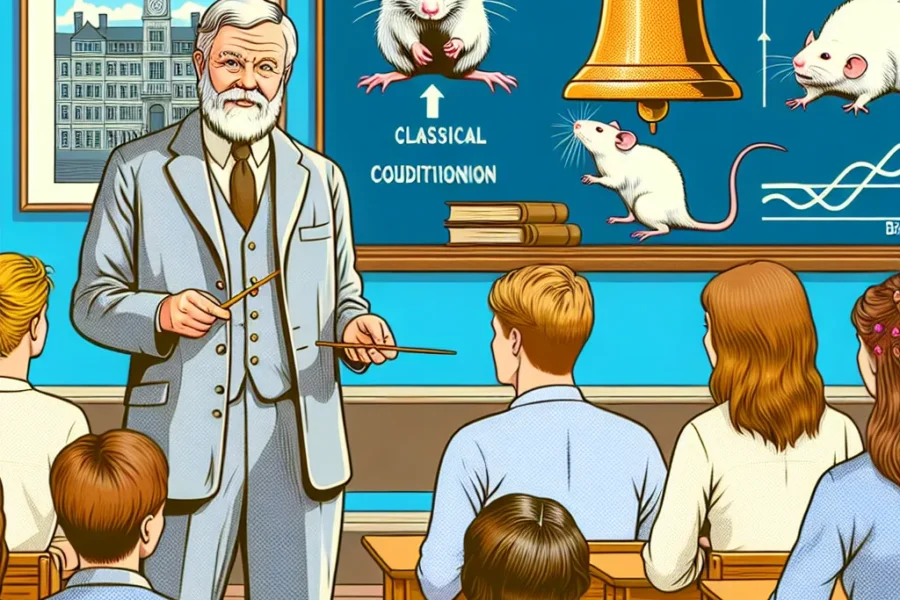Ivan Pavlov’s Enduring Legacy in Psychology
Ivan Petrovich Pavlov, a name synonymous with classical conditioning, has left an indelible mark on the field of psychology. His pioneering experiments on conditioned reflexes have propelled a new understanding of human and animal behavior, leading to the development of various psychological theories and practices that remain crucial to this day.
Born on September 14, 1849, in Ryazan, Russia, Pavlov’s early life was influenced by the church. However, his curiosity in science led him to pursue a career in physiology. His contributions were initially in the digestive system, earning him the Nobel Prize in Physiology or Medicine in 1904. But it is his work on the salivary reflex that projected him into psychological fame.
Pavlov’s experiments with dogs are legendary. He noticed that the animals salivated not only when they tasted food but also when they saw the lab assistant who fed them. Intrigued by this anticipatory response, Pavlov began to investigate these reflexes, distinguishing between unconditioned reflexes—natural, automatic behaviors—and conditioned reflexes—learned responses to previously neutral stimuli.
He conducted his famous experiment where a bell was rung just before presenting food to the dog. After repeated associations, the dog began to salivate upon hearing the bell, even without the presence of food. This phenomenon came to be known as “classical conditioning,” and it opened vast new areas of exploration in psychology.
Pavlov’s legacy extends far beyond this singular discovery. His work demonstrated the importance of the scientific method in psychological research and paved the way for behaviorism, a school of thought that dominated psychology for the first half of the 20th century. Behaviorism focuses on observable behaviors, reinforcing the idea that the environment shapes behavior.
The principles of classical conditioning have had far-reaching implications in various fields of psychology. In clinical psychology, these principles have been employed in the development of treatments for phobias and anxiety disorders, through techniques such as exposure therapy. The basic premise is that just as a fear response can be learned through classical conditioning, it can also be unlearned or replaced with a more adaptive response.
In educational psychology, Pavlov’s work has influenced the use of reinforcements and punishments in the classroom to shape student behavior. His research on the temporal contiguity of stimuli has also been instrumental in teaching strategies that aim to pair positive reinforcement closely in time with desired behaviors to strengthen learning.
Behavior modification techniques, often used in parenting and rehabilitation programs, also have their roots in classical conditioning. The understanding of how consequences can lead to an increase or decrease in behavior has helped in developing strategies for encouraging positive behavior and eliminating negative ones.
The commercial world, particularly the realm of marketing and advertising, has applied Pavlov’s principles to influence consumer behavior. The association of products with attractive stimuli can create a conditioned response in consumers, making them more likely to choose a particular brand or product because it evokes a positive emotional response.
Pavlovian principles also play a crucial role in understanding the brain’s reward system, which is central to theories of motivation and addiction. Research on dopamine-driven reinforcement pathways in the brain has shown how addictive behaviors can be seen as maladaptive forms of learning through classical conditioning.
Despite its enormous influence, Pavlov’s work is not without critique. Critics argue that his focus on observable behaviors neglected the role of internal mental states and cognition. This criticism eventually led to the rise of cognitive psychology, which sought to include mental processes like thinking, memory, and attention into the understanding of behavior.
Even as psychology evolves and expands into diverse branches, the principles of classical conditioning remain relevant. In the digital age, with the advent of artificial intelligence and machine learning, Pavlov’s work provides foundational ideas for the development of algorithms that rely on repetition and association to ‘teach’ computers to recognize patterns.
Apart from his scientific achievements, Pavlov’s personal attributes—his dedication to empirical research, his insistence on precision, and his rigorous attention to detail—have served as an inspiration for psychologists and researchers. His impact on the scientific community is also reflected in the Pavlovian Society, which continues to explore classical conditioning and its implications for psychological science.
Pavlov’s findings have transcended the confines of academic disciplines, influencing not only psychology but also education, philosophy, neuroscience, and even literature and the arts. His concept of the conditioned reflex has become a part of everyday language, with terms like “Pavlovian response” being used to describe instinctive reactions to certain stimuli.
In conclusion, Ivan Pavlov’s seminal work has shaped our understanding of human and animal behavior, and its effects are as pronounced today as they were over a century ago. The torch of his scientific inquiry continues to ignite new explorations into the workings of the mind, proving that his legacy in psychology is not merely enduring—it is evolving. Understanding Pavlov’s contributions equips us with fundamental psychological insights, enriching our knowledge about the complexities of behavior and enabling us to harness this understanding for practical applications in society.



Leave a Comment